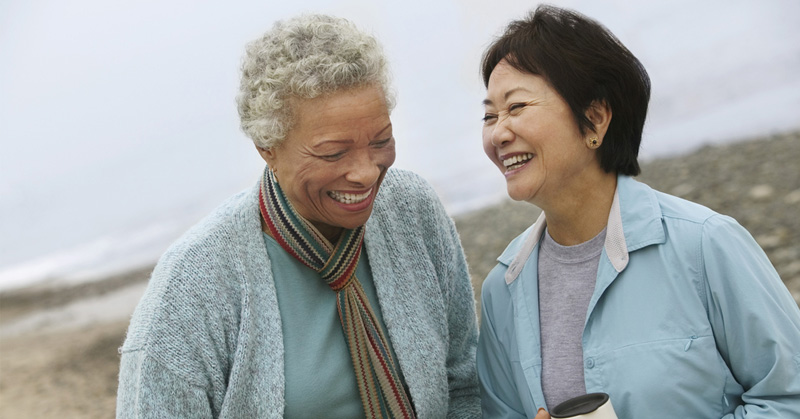Losing friends throughout the years can be difficult to understand. Sometimes, the people you were the closest to when you were younger tend to fall by the wayside, and your friendship becomes less and less of a priority. After making memories, sharing secrets and having fun together, it can be hard to let go of a friendship that doesn’t stand the test of time.
Most people lose friends as they age, here’s why it’s perfectly natural:
1. You Have Less Time
With every passing year comes more responsibility. As you grow older and life gets a little more hectic, you start to truly value the concept of time. When you manage to lock down some free time, you want to spend it with the people you’re closest to and care most about, instead of those who are simply acquaintances. Your busy schedule allows for time with your family and true friends — those who are by your side through thick and thin — the people who make you laugh, support you and build you up.
2. You Stop Tolerating Those Who Aren’t Genuine
While many circumstances may force you to get along with people who are completely incompatible with you, such as co-workers or rarely seen extended family members, as you get older, you tend to stop tolerating people who aren’t genuine. You realize that the people you surround yourself with can either lift you up or bring you done, and you slowly cut people out of your life who are negative. Ridding yourself of false friends makes room for stronger relationships with true friends.
3. You Have More Experience

When you’re young, you may go through an experience where someone who claims to be your friend uses you then loses you. Finding out that someone you relied on had a hidden agenda can be extremely hurtful, but each lost or broken friendship becomes a lesson. As you age, you learn to separate the friends you can truly rely on from those who would turn their backs on you if things got tough. This process of weeding out is completely natural, and it helps you see the truth about who has your back, no matter what.
4. Your Priorities Change
William Rawlins, the Stocker Professor of Interpersonal Communication at Ohio State University stated, “The real bittersweet aspect is young adulthood begins with all this time for friendship, and friendship just having this exuberant, profound importance for figuring out who you are and what’s next. And you find at the end of young adulthood, now you don’t have time for the very people who helped you make all these decisions.” While friends are a huge priority at a young age, your priorities tend to change with age, often changing to work, success or family. While it’s natural for priorities to change, remember that friendship is still an essential key to happiness and wellness.
5. Your True Friendships Have Grown
The friends who’ve stuck by your side through the good times and bad are the ones who will be there to support you, no matter what. Somewhere along the line, the fair weather friends and acquaintances start to fall away, and you’re left with the friends who support you, motivate you, brighten your mood and are happy to see you succeed. These friendships are the ones that grow and strengthen. You develop deeper bonds and connections with every up and down you face together, and you begin to realize that quality is much more important than quantity.
Sources:
David Wolfe
David Wolfe
CNN


